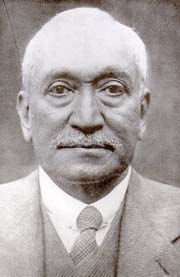A Quote by William Hazlitt
We are the creatures of imagination, passion, and self-will, more than of reason or even of self-interest. Even in the common transactions and daily intercourse of life, we are governed by whim, caprice, prejudice, or accident. The falling of a teacup puts us out of temper for the day; and a quarrel that commenced about the pattern of a gown may end only with our lives.
Related Quotes
What is passion? It is surely the becoming of a person. Are we not, for most of our lives, marking time? Most of our being is at rest, unlived. In passion, the body and the spirit seek expression outside of self. Passion is all that is other from self. Sex is only interesting when it releases passion. The more extreme and the more expressed that passion is, the more unbearable does life seem without it. It reminds us that if passion dies or is denied, we are partly dead and that soon, come what may, we will be wholly so.
However we may flatter ourselves to the contrary, our friends think no higher of us than the world do. They see us through the jaundiced or distrustful eyes of others. They may know better, but their feelings are governed by popular prejudice. Nay, they are more shy of us (when under a cloud) than even strangers; for we involve them in a common disgrace, or compel them to embroil themselves in continual quarrels and disputes in our defense.
Who is telling us about the false self today? Who is even equipped tell us? Many clergy have not figured this out for themselves, since even ministry can be a career decision or an attraction to "religion" more than the result of an encounter with God or themselves. Formal religious status can maintain the false self rather effectively, especially if there are a lot of social payoffs like special respect, titles, salaries, a good self image, or nice costumes. It is no accident that the religious "Pharisees" became the symbolic bad guys in the Jesus story.
At the same time the Muslims are commanded to exercise self-restraint as much as possible. Force
is a dangerous weapon. It may have to be used for self-defense or self-preservation, but we must
always remember that self-restraint is pleasing in the eyes of Allah. Even when we are fighting, it
should be for a principle not out of passion.
Self-interest, to be sure, is one of the most important, but we have many other motives - honesty, self-respect, altruism, love, sympathy, faith, sense of duty, solidarity, loyalty, public-spiritedness, patriotism, and so on - that are sometimes even more important than self-seeking as the driver of our behaviors.
Still, even the most admirable of atheists is nothing more than a moral parasite, living his life based on borrowed ethics. This is why, when pressed, the atheist will often attempt to hide his lack of conviction in his own beliefs behind some poorly formulated utilitarianism, or argue that he acts out of altruistic self-interest. But this is only post-facto rationalization, not reason or rational behavior.
By directing our sentiments, passions, and reason toward the common human plight, imagination grants us the advantages of a moralexistence. What we surrender of innocent love of self is exchanged for the safeties and pleasures of belonging to a larger whole. We are born dependent, but only imagination can bind our passions to other human beings.
Even though its common knowledge these days, it never ceases to amaze me that all the richness of our mental life - all our feelings, our emotions, our thoughts, our ambitions, our love life, our religious sentiments and even what each of us regards us his own intimate private self - is simply the activity of these little specks of jelly in your head, in your brain. There is nothing else.
Before making peace, war is necessary, and that war must be made with our self. Our worst enemy is our self: our faults, our weaknesses, our limitations. And our mind is such a traitor! What does it? It covers our faults even from our own eyes, and points out to us the reason for all our difficulties: others! So it constantly deludes us, keeping us unaware of the real enemy, and pushes us towards those others to fight them, showing them to us as our enemies.
Lord, help us to see in your crucifixion and resurrection an example of how to endure and seemingly to die in the agony and conflict of daily life, so that we may live more fully and creatively. You accepted patiently and humbly the rebuffs of human life, as well as the torture of the cross. Help us to accept the pains and conflicts that come to us each day as opportunity to grow as people and become more like you-make us realize that it is only by frequent deaths of ourselves, and our self-centered desires that we can come to live more fully, only by dying with you that we can rise with you.



































